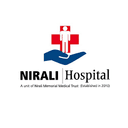PhD in Nuclear Medicine
OR
Prepared by Docthub Courses Team ∣
Last updated on 03 Sep 2025
Overview
A PhD in Nuclear Medicine is a research-focused program that explores the use of radioactive substances in diagnosing and treating medical conditions. It falls under the specialty of radiology and medical imaging. The course typically lasts 3 to 5 years, depending on the research topic and institution. Students in this program study the principles of nuclear imaging, radiopharmaceuticals, radiation safety, and their application in clinical settings.

Table of Content
What is a PhD in Nuclear Medicine?
A PhD in Nuclear Medicine is a professional doctorate in the study of the application of radioactive substances in the discovery, cure, and experimentation with diseases, which is friendly to scholars. The course involves much study in radiopharmaceuticals, molecular imaging, physical and clinical effects of radiation, such as in oncology, cardiology, and neurology.
Medical and scientific practitioners with the desire to make a contribution to the emerging profession of nuclear medicine via their original research, innovation, and clinical development would find this program optimal. It also links the gap between diagnostic imaging, diagnostic therapeutic nuclear procedures, and precision medicine.
Highlights:
Particulars
PhD in Nuclear Medicine
Course Type
Doctoral / Research (PhD)
Duration
3 to 5 years
Eligibility
MD / DNB in Nuclear Medicine OR MSc in relevant field with NET/JRF or equivalent
Admission Process
Entrance exam + Interview
Fees
₹1,00,000 to ₹3,00,000 per year
Colleges in India
- AIIMS
- INMAS
- PGIMER
- BARC
- SRMIST
- JIPMER
- Sanjay Gandhi Postgraduate Institute of Medical Sciences
- Yenepoya (Deemed to be a university)
- CMC Vellore
- Sri Venkateswara Institute of Medical Sciences
Job Roles
- Nuclear Medicine Scientist
- Molecular Imaging Researcher
- Radiopharmaceutical Developer
- PET/CT Specialist
- Professor or Academic Head
- Radiation Safety Officer
- Medical Physicist
- Nuclear Pharmacist
- Research Assistant
- Nuclear Engineer
Eligibility:
PhD in Nuclear Medicine eligibility is MD / DNB in Nuclear Medicine OR MSc in Physics, Chemistry, Biotechnology, Biochemistry, or related life sciences.
Candidates must have to pass UGC-NET, CSIR-NET, GATE, or institutional entrance exams. However, some institutes may require prior research experience or published work.
Duration:
It is generally for 3 to 5 years, depending on the research scope, thesis submission, and university requirements.
Fees:
Government Institutes charge ₹50,000 – ₹1,50,000 per year, while Private/Deemed Universities: ₹2,00,000 – ₹3,00,000 per year. However, scholarships like CSIR/UGC JRF, DST fellowships, or institute-funded stipends are available.
Who Should Do This Course?
Postgraduate doctors working in Nuclear Medicine, aspiring to an academic or research career
Graduates of the MSc who want to work in imaging with molecules, radio-pharmaceutics, or biomedical research
Scientists who wish to build a career in nuclear medicine laboratories, diagnostic pharmaceutical, or academia
To participate in personalised medicine and cancer diagnostics as professionals, private practitioners will be needed.
Why Study This Course?
Urgent need for professionals in nuclear medicine in the imaging, cardiology, and oncology sectors
Innovation opportunities of radiotracer development and theragnostic
Opportunity to get a job in leading research facilities, pharmaceutical companies, and hospitals
Make a contribution to innovative achievements in cancer diagnosis, PET/CT, and monitoring after treatment
Entrance Exam
UGC-NET
CSIR-NET
GATE
Institutional entrance
Some institutes conduct direct interviews on the basis of JRF selection
Admission Process
Apply through the university/institute portal.
Appear for the written test or submit JRF/GATE score
Personal Interview + Research Proposal discussion
Final selection based on merit, supervisor availability, and funding
Syllabus:
Semesters
Topics Covered
Year 1
Research Methodology, Radiation Physics, Radiobiology, Nuclear Imaging Techniques
Year 2
Radiopharmaceutical Chemistry, PET/CT Imaging, Dosimetry, Ethics in Research
Year 3+
Thesis Work, Publications, Clinical Trials, Data Analysis & Final Viva Voce
Top Colleges / Institutes:
PhD in nuclear medicine colleges are:
- AIIMS
- INMAS (DRDO)
- BARC
- PGIMER
- SRM Institute of Science and Technology
- JIPMER
- Sanjay Gandhi Postgraduate Institute of Medical Sciences
- Yenepoya (Deemed to be a university)
- CMC Vellore
- Sri Venkateswara Institute of Medical Sciences
Scope
Nuclear medicine radiopharmaceuticals R&D
Medical colleges/ universities, educational/ teacher jobs
Cancer hospitals, diagnostic chains, and PET/CT centers
Global professions in medical analysis, imaging services, or administrative organizations
New nuclear tracers, isotopes, and molecular diagnostic assays
Further Study Options
Post-Doctoral Fellowships
Certification in Clinical Research, AI in Imaging, or Data Analysis
MBA in Hospital/Healthcare Management
Career Opportunities after This Course:
PhD in nuclear medicine jobs are:
- Nuclear Medicine Scientist
- Molecular Imaging Researcher
- Radiopharmaceutical Developer
- PET/CT Specialist
- Professor or Academic Head
- Radiation Safety Officer
- Medical Physicist
- Nuclear Pharmacist
- Research Assistant
- Nuclear Engineer
Salary:
Experience level
Salary Range
Entry-level
₹6–10 LPA
Senior Scientists / Imaging Specialists
₹12–20 LPA
Abroad / Private Pharma
$70,000 – $120,000 per year
Teaching roles
₹8–15 LPA
Explore colleges for this course

Explore this course by location..
by States
by Cities
Related Job Roles
Nuclear Medicine Physicist
Related Job Vacancies
View All 46 Jobs

FAQS
What is a PhD in Nuclear Medicine?
PhD Nuclear Medicine is a doctoral research degree course in the application of radioactive materials, in the diagnosis and treatment of diseases. It integrates both high-level training in the science of imaging technologies (such as PET and SPECT) and radiopharmaceuticals, molecular imaging, and radiation safety. Candidates carry out original research to enhance the diagnostic capabilities and therapeutic uses of nuclear medicine. The program is recommended to those interested in the scientific innovations in the fields of medical imaging, oncology, cardiology, and personalized medicine. Graduates usually tend to work in research-based organizations, hospitals, universities, and pharmaceutical industries, where they help in the improvement of nuclear healthcare.
How to get a PhD in Nuclear Medicine?
To obtain a PhD in Nuclear Medicine, an Individual will need a postgraduate qualification (MSc in Nuclear Medicine, Medical Physics, Radiology, or analogous). Certain medical professionals who possess an MD/DNB in Radiology would also be considered eligible. It is usually based on entrances, academic excellence, and interviews. The applicants are also expected to provide a research proposal or a statement of purpose, and the successful applicants are assigned a supervisor to work with in the course of the research
What is the salary of a PhD in Nuclear Medicine?
The salary of a PhD holder in Nuclear Medicine depends on the job and the organization. The salary of entry-level research scientists in India is ₹6-10 LPA, and the experienced research scientist, working in the pharmaceutical or diagnostic industry, may get 12-20 LPA. The earning potential of nuclear medicine specialists in academic or hospital settings varies between 8 to 15 LPA, while working abroad, especially in the U.S, UK, or the Middle East, can earn much more.
How long is a PhD in Nuclear Medicine?
The Nuclear Medicine PhD is earned through 3-5 years. The later year tends to have research methodology courses, nuclear physics, radiopharmaceuticals, and regulations on safety. The remaining years are devoted to experiments, data gathering, thesis writing, and publishing of results. It can take a longer period based on the university, the research project, and the rate at which the student will submit his/her dissertation.
Is a PhD in Nuclear Medicine a doctor?
Yes, an individual who acquires a PhD in Nuclear Medicine is titled as a doctor. A PhD in Nuclear Medicine is a research-driven degree, and although some of the people with the degree can practice in the clinic (and particularly, those with a medical degree), their field of interest, instead, is research, diagnosis, and innovation, rather than direct patient care.
Related Course titles

Qualifications
MD Nuclear Medicine







